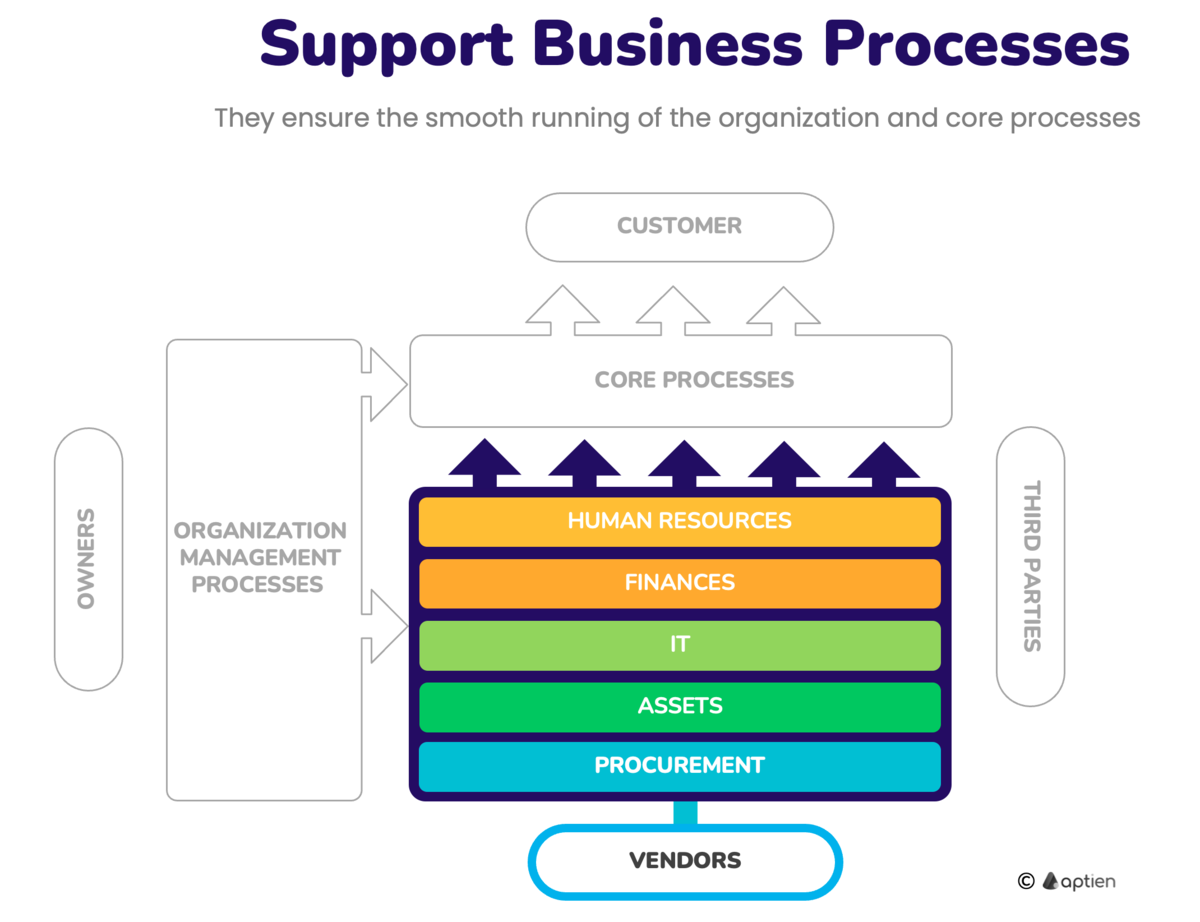Why are Support Processes Important? They Keep Your Business Running Smoothly!
Support processes refer to the activities within a company that assist and sustain the core processes, ensuring everything operates efficiently
- These activities and processes enable the core functions to perform effectively
- Support processes supply the necessary resources for the business to operate
- They are typically found in the company's back office
- Together with core and management processes, they form the third key category of business processes
Which Processes Are Considered Supporting Processes?
Supporting processes are essential for a company to deliver its services or products effectively. Although they are not labeled as main or core processes, they are crucial for the company's operation. Every process within a company serves a purpose, and supporting processes ensure the smooth functioning of the main processes that create value. These processes include employee care, financial management, IT, work equipment, and the work environment. They can be categorized into the following areas:
- Human Resources: These processes manage the lifecycle of employees, from hiring to departure.
- Finance and Accounting: These processes handle accounting and the management of financial resources.
- IT: These processes involve managing corporate IT management and information systems.
- Assets, Workplaces, Equipment, and Infrastructure: These processes manage the company's physical assets and work environment.
- Purchasing: These processes deal with procurement and supplier relationships.
Examples of support processes in an organization
- Bookkeeping, accounting
- Payroll processing
- Recruitment of new employees
- Maintenance of machinery and equipment
- Building management & maintenance
- Issuing work equipment to employees
- Supplier selection
- Purchasing processes
- Cybersecurity management
